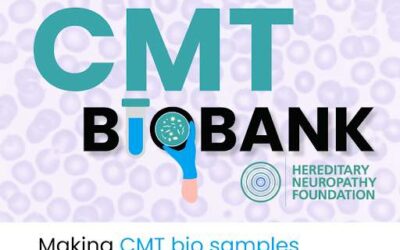CMT4 can be either a demyelination (CMT4A), axonal (CMT4A) or intermediate sensorimotor neuropathy (CMT2K). It is an autosomal recessive pattern. Onset can be as early as infancy to early childhood. CMT4 affects both the distal and later in the disease proximal muscles with atrophy, sensory loss, foot and hand deformities with vocal cord paresis.
HNF Research Initiatives
Gene Therapy
Burke Neurological Institute
The Willis Lab has developed a CMT4A rat model developed and owned by HNF to test a gene therapy to treat GDAP1 – CMT4A.
University of Miami
The Saporta CMT Stem Cell Laboratory is a state-of-the-art facility working to develop iPSc’s for CMT4A (GDAP1). These iPSc’s will support both the gene therapy and repurpose drug programs.
FDA Repurpose Drugs
Rarebase
In September 2021, HNF partnered with Rarebase, a public benefit company that leverages cutting-edge technology (Function, a tech-enabled drug discovery platform) and biology using FDA-approved drugs to deliver accelerated, off-label treatments for CMT1A. HNF has completed Phase I of the project.
Natural History Studies
The Global Registry for Inherited Neuropathies (GRIN)
Developed in 2013 to stratify large groups of patients for all types of CMT to gain a deeper understanding of CMT. This important data also allows HNF to better identify the burden, diagnostic journey, and prevalence of CMT that will aid TRIAD research partners.
Patient data = Improved Research & Clinical Trial Design
CMT&Me App
A smartphone digital study sponsored by Pharnext Pharmaceuticals in collaboration with HNF, other CMT advocacy groups and experts in six countries to collect real-world anonymised data from adults (≥18 years) living with CMT. The aggregated data is available in close to real time, via dashboards and is analyzed based on pre-set criteria (ie. diseases stage, daily symptoms, age, demographics) to understand the real-world impact of CMT and the unmet needs of patients.
If you don’t know your CMT type, you can find out from the HNF through The CMT Genie Program.
www.cmtgenie.org2025 CMT Roadshow Coming to a City Near You?
Do you want to make a difference in CMT research? HNF is looking for patients with a confirmed CMT diagnosis to participate in the CMT Biobank
“Grow or Mow” A Sheer Success!
Brandon, his wife, and Alana would host a virtual ‘Mow or Grow’ fundraiser with each $1 vote going towards CMT research.
Do You Have Charcot-Marie-Tooth Type 4 (CMT4)? – We Need Your Help
Autosomal recessive demyelinating CMT4 patients present with earlyonset and slowly progressing symptoms. These include progressive distally accentuated weakness and atrophy of muscles in the lower limbs. In addition, patients may have weakness and atrophy of hands, sensory loss and pes cavus (high-arched feet), and walking difficulties. Further information on CMT4 can be found at Orphanet.



